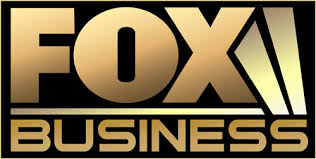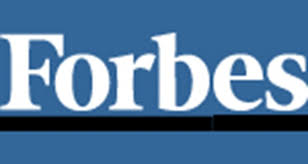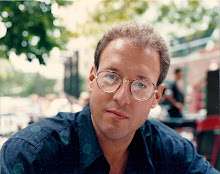 Of what importance are brand stories? They don't exist. What brand stories can you, the consumer, recite with the ease of a nursury rhyme? And how does that story - as recited - make the brand relevant to you beyond "I like Coke." Can you tell me the story of Coca-Cola, Marlboro or McDonalds - the world's three most valuable consumer brands? What about Nike, Adidas or Oakley? Can you tell me their brand stories? What about Tide, Crest or Mr. Clean? What is their brand story? Is it that only the people that work in these companies think they have a brand story - or is the brand story just marketing speak? On the fringe of my knowledge is Starbucks. I think Howard Shultz started by purchasing someone else's coffee shop in Seattle - then he gave people the love/hate relationship of "you either like dark roasted coffee or you don't." After that, all of the stores started to look and taste the same way - a la McDonald's." So that's what I know of his story, and I'm in the business! In fact, at one time, during Starbuck's rapid growth phase I owned over 40,000 shares.
Of what importance are brand stories? They don't exist. What brand stories can you, the consumer, recite with the ease of a nursury rhyme? And how does that story - as recited - make the brand relevant to you beyond "I like Coke." Can you tell me the story of Coca-Cola, Marlboro or McDonalds - the world's three most valuable consumer brands? What about Nike, Adidas or Oakley? Can you tell me their brand stories? What about Tide, Crest or Mr. Clean? What is their brand story? Is it that only the people that work in these companies think they have a brand story - or is the brand story just marketing speak? On the fringe of my knowledge is Starbucks. I think Howard Shultz started by purchasing someone else's coffee shop in Seattle - then he gave people the love/hate relationship of "you either like dark roasted coffee or you don't." After that, all of the stores started to look and taste the same way - a la McDonald's." So that's what I know of his story, and I'm in the business! In fact, at one time, during Starbuck's rapid growth phase I owned over 40,000 shares.Oh, I think some people have a brand story, like the Greenwich Village woman who started a shop selling nothing but french fries and offering 105 different dipping sauces. Yes. She has a brand story that is relevant to her customers that know her on a daily basis. And she earns the appreciative nods of those who read about her success. Good going. She has a brand. It is her and her store. But Betty Crocker? Come on, give me a break.











5 comments:
hi, I from Viet Nam. Y Blog is very nice. Please exchange link Blog with me. Thank y verymuch.
my blog: http://haitvonline.blogspot.com
Thanks for the post. Brand stories should be told, but keep them short. If you cant tell your story using flip books then you haven't thought it through well enough. Less is more. Keep it simple>
And what is the shortest sweetest brand story that you know?
What the H,
Coca-Cola. "Your dad's soft drink."
Marlboro. "Cigarettes for the tough."
McDonald's. "Fast food."
Nike. "High tech, foot-focused gear."
Adidas. "German soccer-focused gear."
Oakley. "Colorful eyewear."
Tide. "Fresh laundry."
Crest. "White, clean teeth."
Mr. Clean. "Badass on household stains."
Starbucks. "Drink mother earth."
Betty Crocker. "Like mom's baking."
I think the term "brand stories" can be limiting. I like to think of brands, particularly older ones, and leaders in their respective markets, having somewhat of a lore or mythology surrounding them. It's virtually impossible to memorize The Odyssey, but easy to remember the iconic and symbolic moments in the story.
Martin, I guess my question in response is.. assuming "brand mythology" is the cultural, contextual understanding of a brand, past and present, is that "brand mythology" significantly relevant to the behavior of a particular product's consumers?
Carl,
You have excellent marksmanship and hit the bullseye with your question. I believe that brands have a mythology that is statistically significantly relevant to the behavior of a particular product's consumers during the new product or brand's rapid growth phase - everyone wants to glom on. When the transition to mature earnings business or company happens, the mythology looses its magnetism as the product becomes a heavily price driven commodity - such is the case with Folgers, Crisco, Duncan Hines, United or so many other consumer packaged goods brands at this time. Witness Starbucks. As heavy dark roast coffee consumers flocked to Howard Schultz's siren song, Starbucks remained the only food and beverage stock worth holding in your portfolio - like Home Depot in the early days - with meteroric stock prices and frequent splits! But once Howard started hiring "managers" instead of "creators," Starbucks started becoming "more things to more people" rather than maintaining the brand's strength of being less things to fewer people. Introducing Milder Dimensions heralded the transition from mythology and rapid growth to run of the mill consumer habit and practice - which point I dumped my stock because I knew they were ending the rapid growth phase - and sure enough, that was the last of the meteroric stock price rises and splits. I wrote Howard saying, "had I wanted Maxwell House, I would have gone to the grocery store." Now Howard is finally taking his company back to the future and dumping the ill-advised breakfast sandwich et al.
Coca-Cola, in carbonated beverages is at the same/similar crossroads Perrier encountered when it's audience broached the rapid growth phase too. The brand is no longer in vogue. The only thing keeping Coke going is the fact that there are no corn syrups in vitamin water that you can distill down to a syrup to satisfy the mighty bottler and fountain accounts - but they're working on it. Now, like these other brands, Coke finds themselves in a rut - and a rut is a grave with both ends knocked out. So how does the mythology fair up? I think it has very little power unless Coke can find a new mythology. I know of only one type of consumer homework that can resurrect consumer interest and involvement in their business.
Post a Comment